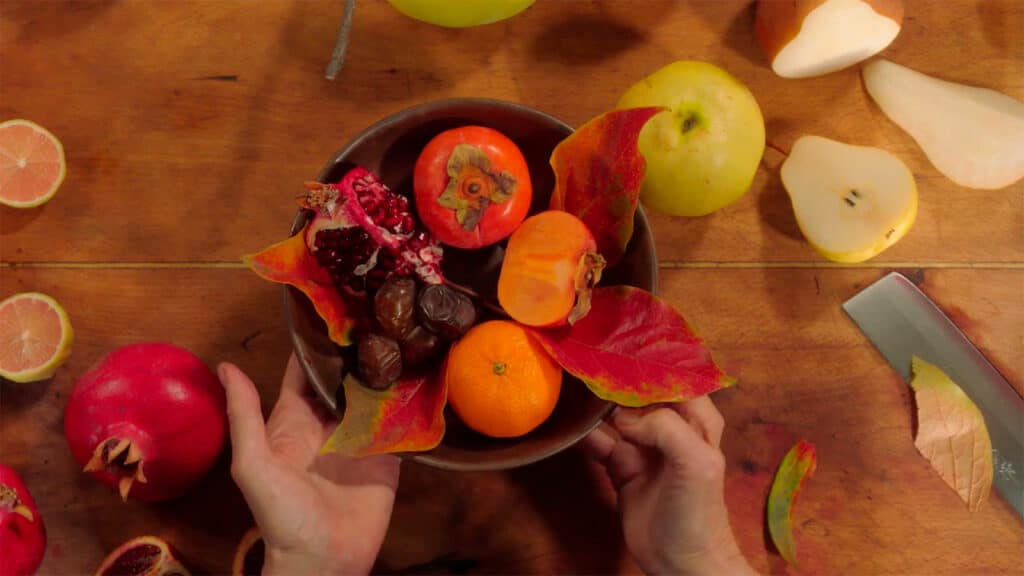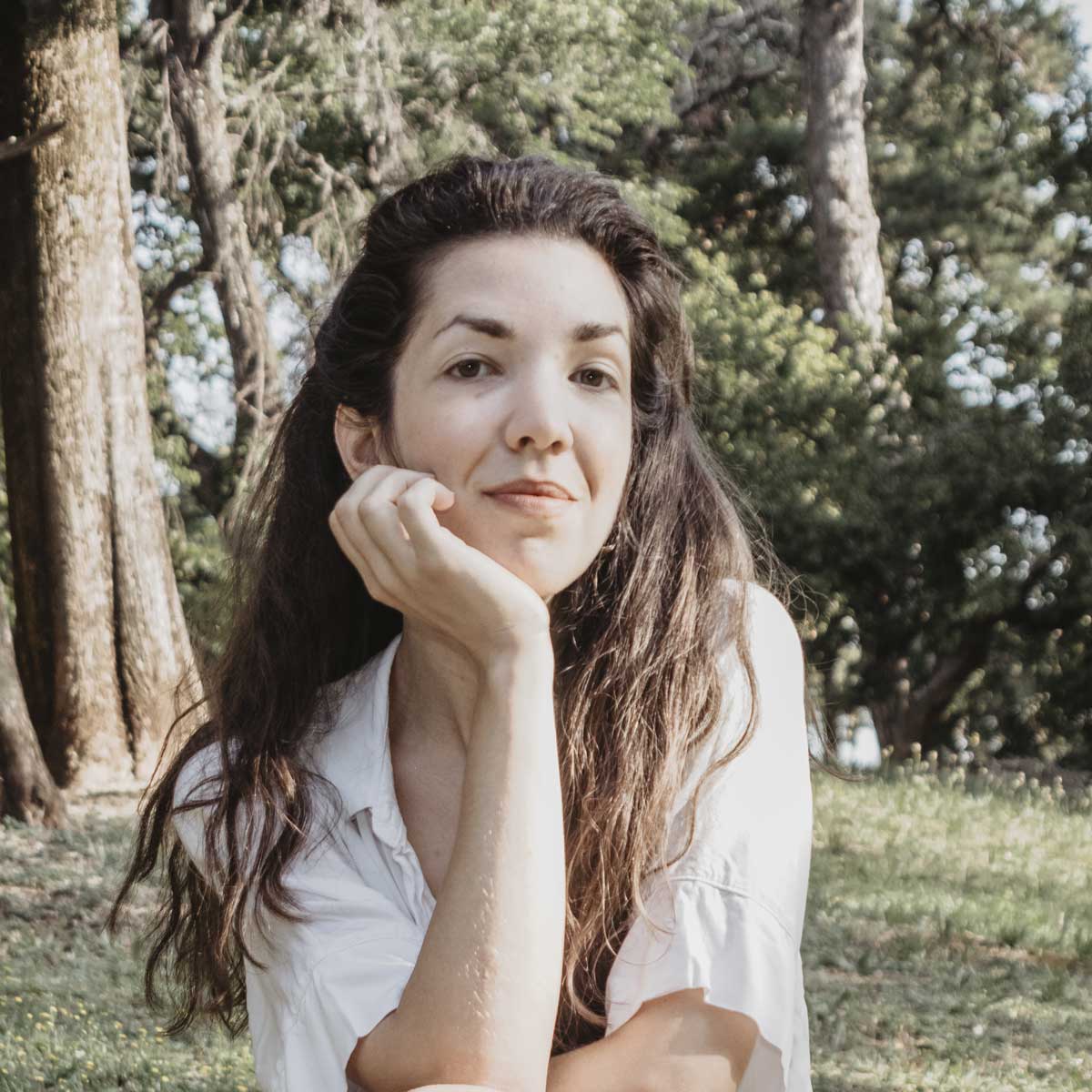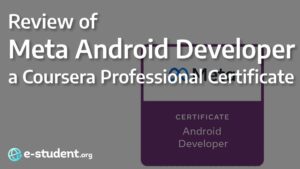Food touches every one of our senses, which are the pathways into our minds.
Alice Waters
The “art of home cooking” – the title of Alice Water’s MasterClass grabbed my attention immediately.
Although I wasn’t very familiar with Alice Waters’ food philosophy, I sensed that I was going to like it.
The use of seasonal vegetables and herbs, shopping at the farmer’s markets, finding joy and relaxation in the cooking process… All of that looked very promising.
But did Alice Waters’ course meet my expectations, and who would I recommend it to?
I’ll tell you everything about my learning experience in the following paragraphs.
Table of Contents
What is the Alice Waters MasterClass?
“Alice Waters Teaches the Art of Home Cooking” is an online course offered by MasterClass, one of the most popular online learning platforms known for its team of well-known instructors.
The class is taught by a famous restaurateur and founder of Chez Panisse, Alice Waters.
In her MasterClass, Alice teaches how to think about food and cooking in a different way. She shows how to follow your senses on the farmer’s market, use seasonal ingredients, and work with kitchen essentials.
In addition to providing cooking tips and sharing her inspiring food philosophy, she also shows how to prepare some of her favorite meals, such as ravioli, galette, and salsa verde.
The course contains 17 video lessons with a total duration of 3 hours and 47 minutes.

Who is Alice Waters?
Alice Waters is a well-known chef, author, and the founder of the acclaimed Chez Panisse restaurant in Berkeley, California.
In 1995, Alice founded the Edible Schoolyard Project, which advocated for a free school lunch for all children and a sustainable food curriculum in state schools. She has also been vice president of Slow Food International and helped create the Yale Sustainable Food Project.
Thanks to her hard work and food activism, Alice has received many awards and honors, including the Harvard Medical School’s Global Environmental Citizen Award and the National Humanities Medal by President Obama.
To Alice Waters, eating is a political act, but it’s also a source of love and joy. This attitude is present in her MasterClass as well, where she teaches her recipes while advocating for local agriculture and sustainable choices.
Who is Alice Waters’s MasterClass for?
In essence, Alice Waters’ MasterClass is for everyone who enjoys (or wants to enjoy) slow food.
While the course doesn’t offer a bunch of modern, new recipes or in-depth instructions on how to make them, it provides something perhaps even more valuable: inspiration and guidance for making your home cooking more enjoyable, tasty, and sustainable.
Alice is a true role model when it comes to using seasonal ingredients, and although I would personally prefer more plant-based meals in her lessons, I think she managed to create a well-balanced and versatile cooking class.
So, regardless of what type of cuisine you prefer, Alice’s advice and stories can help you upgrade your home cooking.
Either way, I do think the course is best suited for beginners as well as those looking for a way to enhance their culinary creativity.
What does Alice Waters’ MasterClass cover?
At the beginning of the course, Alice pointed out that she wants her learners to be freed from recipes and ingredient lists. She wants to teach how to prepare and serve food with a sense of joy, excitement, and discovery.
If you begin cooking this way, says Alice, it will really change your life.

Alice encourages her learners to awaken their senses and to purchase the ingredients consciously, and she does so by demonstrating how to choose ingredients at the farmer’s market and plan your meals based on what you bought.
In her MasterClass, Alice visits the farmer’s market and her garden, but in most lessons, she plans and prepares meals in her own kitchen.
In terms of content, here is what you can expect in each lesson:
- Lesson 1 introduces you to Alice’s philosophy of food.
- Lesson 2 contains Alice’s visit to the local farmer’s market. After shopping for ingredients, she unpacks and plans her meals.
- Lesson 3 features the preparation of the India-inspired lunch. Alice also teaches how to prepare vegetables in three ways.
- Lesson 4 is a demonstration of Alice’s essential kitchen tools.
- Lessons 5-6 deal with quality ingredients with which to stock your pantry. Alice also shows how to make her pantry staples like Quick Pickles and Sautéed Greens.
- Lesson 7 is focused on herbs, leaves, and aromatics you can use in your everyday cooking.
- Lesson 8 contains the recipe for Alice’s salsa verde.
- Lesson 9 shows how to prepare a simple salad.
- Lessons 10-11 are set in Chez Panisse. With the help of her chefs, Alice teaches how to make a galette and ravioli.
- Lesson 12 shows how to use seasonal fruits, herbs, and vegetables.
- Lessons 13-15 feature Alice’s three courses for a fresh market dinner.
- Lesson 16 is focused on the principles of Alice’s Edible Schoolyard Project.
- Lesson 17 is a bonus lesson where Alice demonstrates how to make her egg in a spoon dish.
My favorite parts of Alice Waters’ MasterClass
Truth be told, I enjoyed every single lesson in this course.
There is something very relaxing in Alice’s approach, and the beautifully shot video lessons were delightful to watch… I feel like I’ve just spent some time meditating rather than taking a cooking class.
Of course, I learned a lot, too, as Alice provided me with many interesting tips and ideas.
Although it’s difficult to pick the best one, here are some of the lessons I particularly liked.
The farmer’s market: learning from the source

In this chapter, Alice visits the local farmer’s market with the goal of teaching how to become a discerning shopper.
According to Alice – and I would definitely agree – supporting local, sustainable farmers in your area is important. Apart from being a more eco-friendly choice than shopping in a supermarket, this allows you to talk directly to people who grow your food.
Leaves, herbs, and aromatics

If you don’t use fresh herbs and leaves in your cooking, this lesson will change your mind.
From bay leaves and thyme to mint, parsley, and lemon verbena, Alice showed what kind of herbs and aromatics you can use to upgrade your meals.
She also explained what you can do with them. For instance, she talked about how she makes use of fig leaves, which is something I wasn’t familiar with.
Follow the rhythms of nature

One of the key takeaways of Alice’s MasterClass is that you should always try to eat seasonally.
From cherry tomatoes in early summer to almonds, nuts, and walnuts in the fall, there’s something to look forward to each season.
Alice also emphasized the importance of tasting your fruit before using them and explained how to tell if they’re ripe.
How much does the MasterClass cost?
MasterClass is a subscription-based learning platform, so it’s not possible to purchase courses individually. If you want to take this MasterClass, you have to become a subscriber.
The standard annual plan has been renamed "Plus" and is available at $120 a year (which makes it $10 per month, billed annually), and now provides access to all MasterClass courses on two devices instead of one. The Premium plan, providing access for up to six devices costs $240 per year.
A MasterClass subscription gives you unlimited access to a catalog of 200+ classes, so if you want to take multiple classes throughout the year, the subscription is definitely worth it, and there are pleny of interesting courses on related topics to explore.
Also, the platform offers a 30-day satisfaction guarantee, so if you’re not happy with your learning experience, you can request a full refund.
Note that the "Standard" membership, priced at $72 per year, only gives you access to their short-form learning content – none of their full MasterClasses are included.
What I liked about Alice Waters’ MasterClass
For someone like me, who enjoys cooking and growing veggies in the garden, most of Alice’s suggestions weren’t very revolutionary. But that didn’t affect my overall learning experience – I genuinely enjoyed the course regardless.
In fact, this is probably one of the most relaxing and enjoyable MasterClasses I’ve taken so far.
And here are some of the reasons why I believe you would enjoy it too.
Helpful content
This is not yet another cooking class. Alice’s MasterClass is more of a guidebook on how to appreciate slow food and develop a thoughtful approach to cooking.
But what’s so captivating and effective about this MasterClass is the fact that Alice doesn’t tell you how to live. By letting you into her own house, you can get a sense of how she lives, and you can then draw inspiration from that.
And, as Alice says in the course, once you understand, you will never go back. “It’s a delicious revolution.”
Beautifully shot
Another reason why I enjoyed Alice’s course is its visually stunning, vivid scenes.
The farmer’s market’s delicacies, Alice’s picturesque kitchen, and all of those close-ups of the peaches, tomatoes, herbs, and grapes… I got an urge to go cooking right away.
Relaxing
The combination of beautifully shot videos, Alice’s calming energy, and the topic itself makes this MasterClass incredibly fluid and relaxing.
Well, that’s the beauty of MasterClass – you realize you can study, have fun, and appreciate the aesthetics of the course all at the same time.
Sustainable choices
Alice’s lessons aren’t just nice and relaxing. They’re also educational.
While the course doesn’t offer in-depth culinary knowledge, it does contain many guidelines and suggestions regarding sustainable eating and cooking.
I do wish, however, that she had emphasized the sustainability of a plant-based diet as well.
Nevertheless, she showed how to compost, eat seasonally, and shop locally, all of which contribute to the environment and our better future.
Drawbacks of Alice Waters’ MasterClass
There are, however, some things that could be improved.
Lack of practical tips
As I mentioned before, Alice taught me a lot about kitchen herbs, embracing seasonality, and the beauty of slow food, but she didn’t provide many useful, practical tips.
I guess that’s part of her teaching style, she shows rather than tells, and she is also a very flexible cook. She doesn’t follow recipes, and she doesn’t stick to any strict rules.
Nonetheless, I think it would be cool if she shared more culinary tricks and provided more details regarding certain topics.
Subtitles issues
This isn’t specific to Alice’s course, but for some reason, this issue especially bothered me here.
I usually watch MasterClasses with English subtitles, as this helps me follow the lessons and retain knowledge more easily. And this time, faulty subtitles appeared one too many times. For instance, ‘salsa verde’ became ‘social security’ (don’t put mint in your social security, by the way.)
While this isn’t a big issue for me, I think it might be problematic for some foreign learners who do need subtitles to understand the lessons.
Review conclusion: Is Alice Waters’ MasterClass worth it?
If the goal of Alice Waters’ MasterClass was to inspire and encourage learners to bring their home cooking to the next level, I would say it definitely succeeded – in my case, at least.
I think Alice did a great job of teaching her favorite recipes while advocating for eco-friendly, sustainable choices that can change the world, one plate at a time.
The course is beautifully shot, and I really enjoyed the visual details of colorful fruits, herbs, and veggies, all being prepared in Alice’s own kitchen. In addition to preparing meals at her house, Alice also visited the farmer’s market and Chez Panisse, which nicely added to the dynamic of the course.
I do wish the course provided me with more practical tips and eye-opening information, but I feel like I took a lot out of it nevertheless.
If you want to get more practical advice regarding specific recipes, you can check out Yotam Ottolenghi’s Modern Middle Eastern Cuisine MasterClass.
Either way, although there are some minor things that could be improved, I would wholeheartedly recommend Alice’s class to anyone who wants to awaken their senses and add more excitement to their home cooking.
For a limited time, up to 50% off your subscription.




